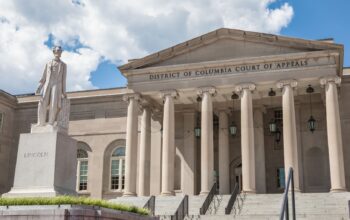The Smithsonian Institution has launched an internal review of its programming after President Donald Trump ordered sweeping oversight of its exhibitions, a move that has drawn sharp criticism from scholars, curators, and the Black community.
In a new memo to staff, Secretary Lonnie G. Bunch III said the institution would respond to White House demands but underscored that “our independence is paramount.”
The White House letter directed the Smithsonian to submit information about programming at eight of its 21 museums, with the administration reserving the right to demand content changes within 120 days. Trump has accused the institution of being “out of control,” focusing too heavily on slavery and systemic racism, while not celebrating what he called “success” and “brightness” in American history.
Bunch, the first African American to lead the Smithsonian, told staff the review would be conducted internally and guided by “rigorous scholarship and expertise.”
The New York Times reported that his letter to the White House was approved by the Smithsonian’s three-person executive committee, though not voted on by the full Board of Regents, which includes Vice President JD Vance and Chief Justice John Roberts.
“Our own review of content to ensure our programming is factual and nonpartisan is ongoing,” Bunch added, “and it is consistent with our authority over our programming and content.”
Smithsonian’s Future Under Threat
Trump’s March executive order, titled “Restoring Truth and Sanity to American History,” specifically cited the National Museum of African American History and Culture (NMAAHC) for what he called “divisive, anti-patriotic content.”
That museum, which opened in 2016, has long been hailed for unearthing untold stories of Black history. Now, its very mission is under political attack.
In a letter obtained by BlackPressUSA.com earlier this year, Bunch assured staff that the Smithsonian would remain committed to “truth, transparency, and historical scholarship.”
“We remain steadfast in our mission to bring history, science, education, research, and the arts to all Americans,” Bunch wrote. “We will continue to showcase world-class exhibits, collections, and objects, rooted in expertise and accuracy.”
A Battle Over American Memory
The fight over Smithsonian content is the latest flashpoint in what experts call a broader campaign to rewrite or sanitize history.
Dr. Jerry W. Washington, an education scholar writing in The Medium, called the executive order part of “the fight over American memory,” linking it to years of attacks on diversity, equity, and inclusion programs and the political weaponization of “critical race theory.”
Historians argue that the White House push represents an effort to politicize museum content, undermining the Smithsonian’s role as a nonpartisan presenter of American history.
“The consequences are real,” Washington warned. “This is about more than exhibits. It’s about erasing the truths that make America whole.”
The Smithsonian, created by Congress in 1846 as a trust, has long balanced autonomy with reliance on federal funding for much of its $1 billion budget. While the White House insists its review seeks only to “replace divisive or ideologically driven language with unifying, historically accurate and constructive descriptions,” critics argue that such directives threaten to erase the painful but essential parts of America’s story.
“The Smithsonian is rooted in rigorous scholarship and expertise, non-partisanship, and accuracy,” Bunch told his staff.
Source: Published without changes from Washington Informer Newspaper



